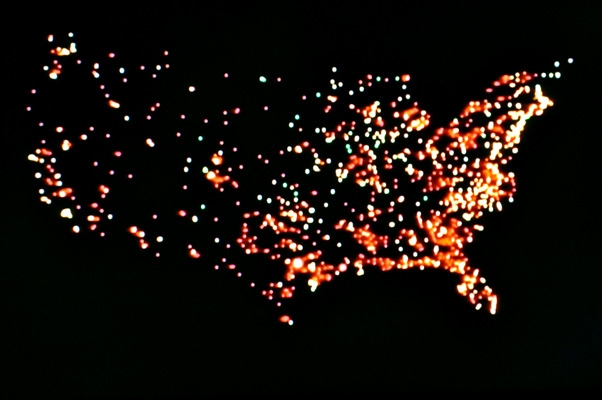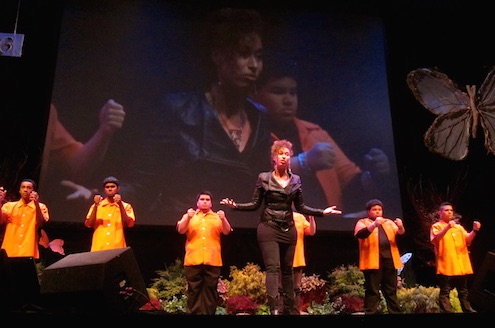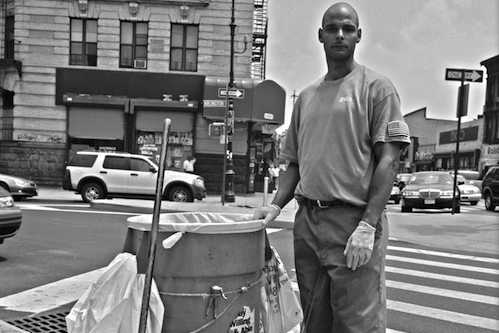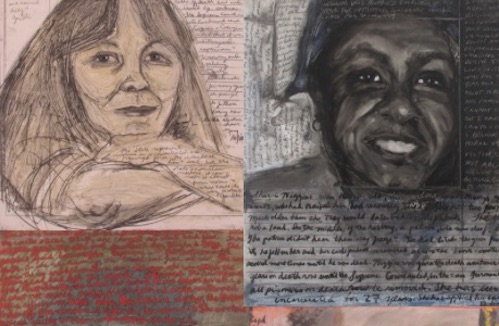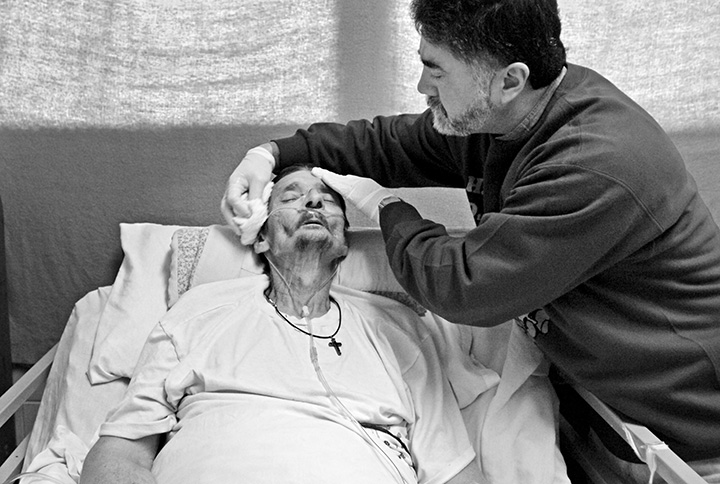THE IMPRISONED ISSUE
 editor’s note
editor’s note
Most of us know the statistics: 2.3 million people incarcerated in the United States, the highest prison population in the world. In many ways, the larger this number grows, we run the risk of becoming desensitized to it. When we decided to curate an issue on the experiences of the men, women, and young people imprisoned within the American criminal justice system, our focus was on the lives behind these numbers.
We looked to artists whose work allowed us a window in the experiences, the day-to-day lives, of those in prison. We looked to artists who used their work to remind us of the toll this system takes on families and loved ones, including their own. We looked to artists who confronted the invisible – the stories that do not make the headlines or those we find too unfathomable to be true – when we talk about our 21st century prison culture. We looked to artists who have been imprisoned themselves.
Curated here in The Imprisoned Issue are ten Artists OF NOTE whose work collectively takes us through a journey of life in prison from birth to death. These artists turn our attention to women, the fastest growing population in prison, and what it means for them to be pregnant, give birth in shackles, and mother from behind prison walls. These artists use their art practice to elevate the voices of young people, too often discounted, who are caught in the school-to-prison pipeline. They allow us, through memoir and poetry, to understand what it means for a child to witness a parent imprisoned. They grant us portraits of hope and redemption of men who are able to rebuild their lives after prison. They also show us what happens when attempts to rebuild fail. And for the growing number of men and women who are sentenced to life, who spend their sunset days behind bars, these artists offer us a compassionate perspective on the aging and dying in prison. – Grace Aneiza Ali
Public Program: On November 13, 2014, the Institute for Research in African-American Studies at Columbia University and OF NOTE co-hosted a conversation with artists from The Imprisoned Issue who use their creative voice to illuminate the ways in which our society treats those within our prison systems with compelling work that engages and troubles our notions of ‘justice.’ Speakers: Samara Gaev, Russell Frederick, Lori Waselchuk, Dr. Samuel Roberts, Grace Aneiza Ali.
Watch the full video below or here.
The Imprisoned Issue in the News:
Featured Articles
Paul Rucker: A ‘PROLIFERATION’ Of Imprisoned Lives
BY MOHAMED KEITA
Paul Rucker’s PROLIFERATION is an attempt at deconstructing the abstraction of US prison figures into a meaningful and emotional experience. In his immersive sound and video installation, individual frames could pass for a satellite image of lights across the United States at night. But this video animation represents a somber spectacle: the sprawling formation of the carceral topography of the continental US.
.
.
Mae Ryan: P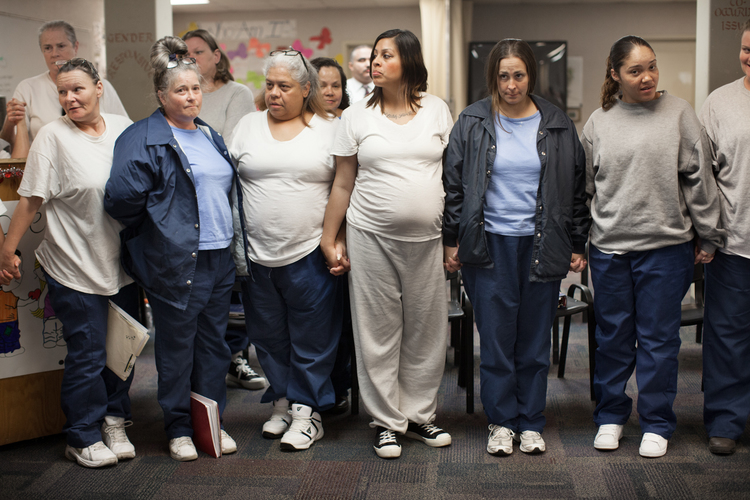 regnancy And Motherhood Behind Bars
regnancy And Motherhood Behind Bars
BY MIKAEL AWAKE
Mae Ryan’s series, Pregnant in Prison, portrays the heartbreak and hope of several women dealing with pregnancy and early motherhood behind bars. Ryan’s photographs are as sensitive as they are stark and unsentimental.
.
.
.
..
..
 Morley: A Song For Women In Prison, Shackled In Childbirth
Morley: A Song For Women In Prison, Shackled In Childbirth
BY GRACE ANEIZA ALI
In response to learning about the ongoing practice in our prisons of shackling women in labor, singer/songwriter Morley penned the song “Unshackled.” In her lyrics, she conjures up an image of a woman living in slavery or in a war zone. Unfortunately, the “chains” Morley references are no metaphor.
..
.
.
Truthworker Theatre Company: Voices Against The School To Prison Pipeline
BY RAJUL PUNJABI
Founded in 2013 by Samara Gaev, the Truthworker Theatre Company brings together young people between the ages of 15 to 22 to create, write, and perform in productions that reflect stories from their own lives as well as those entangled in the prison industrial complex—stories that are often discounted and disregarded.
.
.
..
..
Rayhana Maarouf: When A Father Goes To Prison
BY RAYHANA MAAROUF | GIRLS WRITE NOW
My dad came back a year later [from prison] when I was in the ninth grade. It was hard at first. My dad wasn’t used to a lot of noise, and we had gotten used to him not being there. It felt like he was a piece of china, so fragile you had to handle it carefully so it wouldn’t break.
.
.
R. Dwayne Betts: Coming Of Age In Prison
BY E. ETHELBERT MILLER
Even though we live in a world without borders, Black men are defined by prison and borders and the restriction of their movement on this earth. Yet, somehow they survive the dangerous present. They live to become fathers and raise their children. They caress the neck and shoulders of freedom, turning her lips to their lips.
.
.
.
.
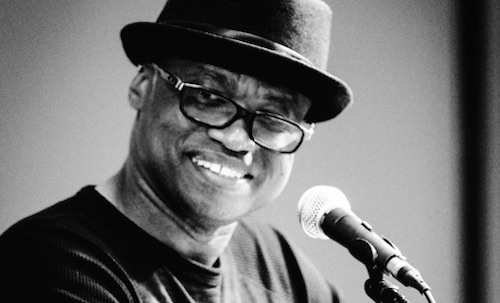 Randall Horton: From Prison, To Poet, To Professor
Randall Horton: From Prison, To Poet, To Professor
BY SALLY-ANN HARD
Randall Horton’s poems are the work of a knowing, compassionate witness. He lays out reasons why we should care, why we should be moved to action and why our treatment of people who are imprisoned is an indictment against our moral, ethical and societal values. Writing, in part to relieve the guilt of the choices he made in his own past, his poems ask us to question what kind of justice we have. We need these poems.
Russell Frederick: Once Upon A Time We Were Kings
BY RUSSELL FREDERICK
Our society vilifies men who are imprisoned. They are reduced to something less than they are. The portraits in Once Upon a Time We Were Kings allows us to think of these men as “Kings.” It is a way to restore them. It shows who these men were before they were imprisoned and who they were after that experience. The images depict that they are still very much in a state of confinement even though they are no longer physically in prison.
Mary DeWitt: Portraits Of Women Serving Life
BY MISHA MCGLOWN
Mary DeWitt’s work is not as much about innocence as it is about humanity. The indignity suffered by these women lies in the severity and permanence of their punishments, and the near complete erasure of their identities in the process.
.
.
..
.
Lori Waselchuk: ‘Grace Before Dying’ For An Aging Prison Population
BY BERETTE MACAULAY
Grace Before Dying is a title most apt for Lori Waselchuk’s project that documents the volunteer prisoner-run hospice program in the Louisiana State Penitentiary (LSP) at Angola. That someone be there to comfort the imprisoned through the emotional, psychological, and moral vicissitudes of their last days would be a consolation most profound—especially when it comes from someone who knows precisely the demons they tackle.

